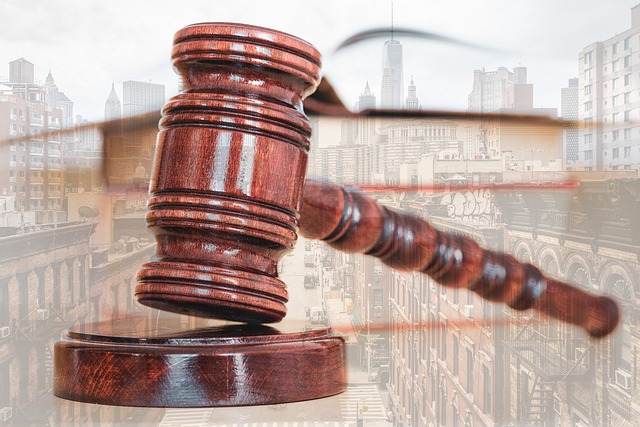Mail wire fraud poses a significant threat during family property division and conflict resolution, with scammers exploiting emotional vulnerabilities for financial gain. Early identification and reporting are crucial to prevent fraudulent activities. All parties involved must remain vigilant, using mediation or arbitration to ensure fair asset division. Staying alert, verifying requests, and seeking specialized legal expertise can protect individuals from scams and safeguard their assets during complex family property conflicts.
Mail wire fraud, a deceptive practice on the rise, poses significant risks, particularly during family property division. As more transactions shift online, scammers exploit digital channels to manipulate vulnerable individuals. This article delves into understanding mail wire fraud, its connection to family property disputes, and provides essential tips for identifying red flags. Moreover, it explores legal solutions for conflict resolution in family property division, emphasizing the importance of safeguarding financial interests.
- Understanding Mail Wire Fraud: A Growing Concern
- Family Property Disputes and Their Role in Scams
- Identifying Red Flags: Tips for Safe Transaction
- Legal Solutions for Conflict Resolution in Property Division
Understanding Mail Wire Fraud: A Growing Concern

Mail wire fraud is a growing concern, particularly with the increasing reliance on digital transactions. This fraudulent scheme involves the misuse of electronic funds transfer systems to steal money or property, often targeted at vulnerable individuals, especially during complex situations like family property division and conflict resolution. Scammers take advantage of the trust associated with these processes, where emotions are high and legal jargon might be confusing for some.
The impact is significant, leading to severe consequences for both corporate and individual clients across the country. It’s crucial to recognize that such frauds often begin with seemingly innocuous interactions, making it imperative for everyone involved in financial transactions—from legal professionals handling property divisions to business owners conducting cross-country deals—to remain vigilant. A complete dismissal of all charges is possible if fraudulent activities are identified and reported promptly.
Family Property Disputes and Their Role in Scams

Family property disputes often serve as a breeding ground for scams, particularly when emotions run high and individuals are desperate to gain control or financial benefits from their inheritance. Scammers target vulnerable family members, especially during times of transition, exploiting the complexities of dividing assets fairly. They may claim that legal documentation is missing or altered, creating an urgent need for immediate action, which can lead to hasty decisions.
These disputes can take various forms, from disagreements over real estate to conflicts regarding valuable heirlooms and financial investments. Scammers capitalize on these tensions by offering quick solutions, such as secret sales or fraudulent legal documents. They may even pose as lawyers or mediators, providing a sense of urgency and authority. This is especially dangerous in the context of white-collar and economic crimes, where sophisticated con artists target both corporate and individual clients. Resolving such conflicts through peaceful means, like mediation or arbitration, can prevent these scams and ensure a fair and lawful division of family property.
Identifying Red Flags: Tips for Safe Transaction

When engaging in transactions, especially during complex processes like family property division or conflict resolution, it’s crucial to recognize potential red flags that could indicate mail wire fraud. Scammers often target vulnerable individuals, particularly during emotional and stressful situations. Be vigilant for unusual requests, such as pressing time frames or demanding private financial information via non-secure channels. Always verify the legitimacy of the request through independent means, like contacting known associates or official channels.
To protect yourself, educate yourself about common scams targeting philanthropic and political communities, white collar and economic crimes. Learn how scammers might impersonate legal professionals or use fake documents to manipulate corporate and individual clients. Never share sensitive data unless you’ve independently confirmed the recipient’s identity and the security of the communication channel. Stay alert during every step of transactions, as your vigilance can serve as a significant defense against mail wire fraud.
Legal Solutions for Conflict Resolution in Property Division

When it comes to resolving conflicts arising from family property division, legal solutions play a pivotal role in ensuring fairness and minimizing disruption. In cases involving mail wire fraud or other financial crimes, specialized legal expertise is essential. Attorneys skilled in white-collar and economic crimes can navigate complex regulations and help clients protect their rights while achieving equitable outcomes. This is particularly crucial when dealing with the unique challenges posed by property amassed through fraudulent means.
The process often involves a meticulous review of financial records, identifying illicit transactions, and constructing a robust legal strategy to facilitate the division of assets. An experienced lawyer can also advise on tax implications and help clients make informed decisions that align with their best interests, especially when considering the long-term impact on philanthropic and political communities. Such specialists boast an unprecedented track record in successfully resolving high-stakes family property disputes, ensuring a fair share for all parties involved.
Mail wire fraud, driven by complex family property disputes, poses a significant challenge. Understanding the red flags and leveraging legal solutions for conflict resolution are paramount in safeguarding transactions. By identifying suspicious activities and seeking professional help, individuals can protect their assets during family property divisions, ensuring fairness and security in today’s digital era.






